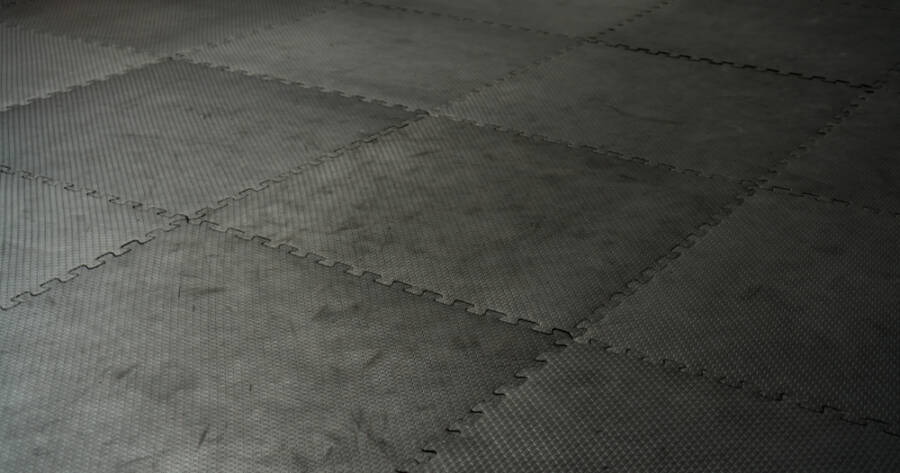Rubber flooring has gained increasing popularity among homeowners, particularly for garages. Known for its durability, flexibility, and easy maintenance, rubber flooring offers numerous potential benefits that can suit a range of needs. It’s a smart solution for modern living spaces. Discover why homeowners are transforming their garages with rubber flooring!
Why Choose Rubber Flooring for Your Garage?
Garages are versatile spaces, often used for much more than just parking vehicles. Many homeowners transform their garages into workout spaces, workshops, or storage areas. For such varied uses, the type of flooring becomes a crucial consideration. Rubber flooring, though commonly associated with gyms and industrial settings, can provide several advantages when used in garages.
Durability and Resilience
Rubber flooring is well-regarded for its strength and durability. When placed in a high-traffic area like a garage, where it may be exposed to vehicles, tools, and heavy equipment, rubber flooring may withstand significant wear and tear. Its shock-absorbing properties could also help reduce the impact of heavy tools or weights, potentially protecting both the flooring and what’s on it.
Moreover, rubber flooring has the potential to last longer than other materials, particularly in harsh environments. Unlike materials like concrete, which may crack under pressure, rubber is designed to remain flexible. This characteristic may help it endure temperature fluctuations without becoming brittle or damaged.
Improved Safety for Garage Use
Garages can sometimes be hazardous environments, with slick concrete floors and sharp tools lying around. One of the potential benefits of using rubber flooring is its slip-resistant nature, especially when wet. If your garage floor is prone to spills — whether it’s oil, water, or snow from a vehicle — rubber flooring may provide added traction, reducing the risk of slips and falls.
Shock Absorption for Accidental Falls
The cushioning effect of rubber flooring is another safety feature worth considering. If you use your garage as a workspace and spend long periods standing, rubber flooring may alleviate some pressure on your legs and back, possibly making it a more comfortable environment. Additionally, in the event of dropping heavy tools or equipment, the floor’s shock absorption could reduce the likelihood of damage to both the items and the floor itself.
Easy Maintenance and Cleaning
One of the most practical aspects of rubber flooring is how easy it is to clean and maintain. Unlike concrete or wood, rubber is generally resistant to stains, and spills are less likely to seep into the material. For instance, if your vehicle leaks oil, a quick wipe-down may be sufficient to clean up the mess.
Resilience to Stains and Spills
In environments prone to accidental spills — whether it’s automotive fluids, paint, or chemicals — rubber flooring may offer an advantage over more porous surfaces. It is often less susceptible to staining, allowing for simple cleaning methods like sweeping, vacuuming, or mopping with mild detergents. This ease of cleaning can help homeowners maintain a clean and functional garage without extensive upkeep.
Moreover, rubber flooring’s resistance to mold and mildew could be particularly beneficial in damp climates. If your garage tends to attract moisture, rubber’s natural water resistance might help prevent long-term issues related to mold growth, though it’s always advisable to ensure proper ventilation.
Insulation and Soundproofing Qualities
Garages are often located adjacent to living areas or directly below bedrooms, which means any noise or cold temperatures in the garage can easily affect the rest of the house. Rubber flooring may help mitigate these concerns by providing both soundproofing and insulation benefits.
Noise Reduction for a Quieter Garage
Rubber’s dense structure could make it effective at absorbing sound, which is a useful feature if you frequently use noisy equipment or tools in your garage. The flooring may dampen the noise of dropping tools or heavy foot traffic, potentially making the space quieter and less disruptive to those inside the house.
Thermal Insulation
Rubber flooring may also act as an insulator, helping to maintain a more comfortable temperature in your garage. In colder climates, rubber flooring could provide some thermal resistance, which might reduce the amount of cold that seeps into the garage from the floor. However, while it may help with insulation, it’s important to remember that rubber flooring alone is not a substitute for proper insulation methods.
Versatile Aesthetic Options
While functionality is often the primary concern, aesthetics shouldn’t be overlooked, especially for those who use their garage as a personal workspace or home gym. Rubber flooring comes in a range of colors, textures, and styles, offering you the option to customize the look of your garage.
Customizable Appearance
Whether you prefer a sleek black surface or a vibrant, colorful design, rubber flooring may be tailored to match your personal style. There are also options for interlocking rubber tiles, which allow for easy installation and can be arranged in patterns or designs. This versatility may enable homeowners to create a space that is not only functional but also visually appealing.
Learn More Today
Rubber flooring offers many potential benefits for your garage, from improved durability and safety to ease of maintenance and customization. While it may not be the perfect solution for every homeowner, its resilience, soundproofing, and potential environmental advantages make it a compelling option worth considering.
Whether you’re converting your garage into a home gym, workshop, or simply looking for a more comfortable and durable flooring solution, rubber flooring could be the upgrade your space needs. Always evaluate your specific needs and consult a professional before making a final decision on your garage flooring.
